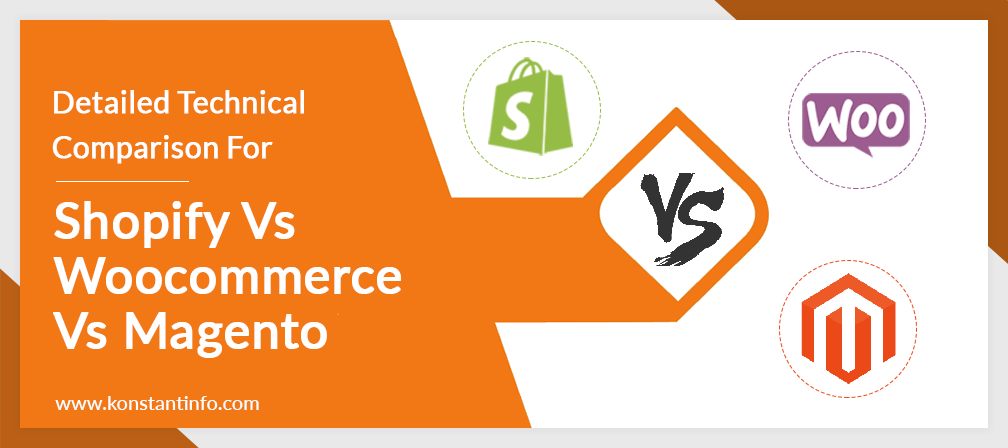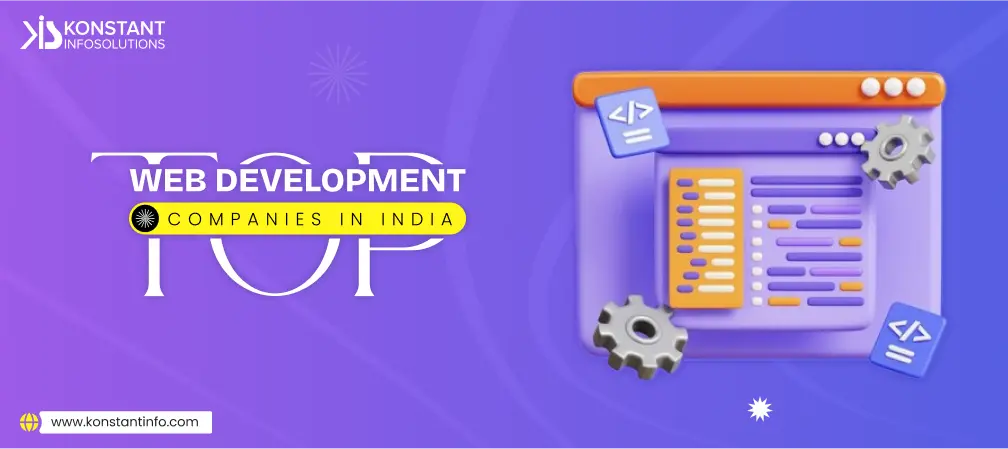How can you ensure that your e-commerce business is the right fit for your company? It requires substantial effort to build a socially responsible e-commerce platform brand that can be even more challenging than a conventional company – as it can be reliant upon a single variable – a third-party platform. This calls for the need to realize and leverage a third-party platform like BigCommerce, Shopify, WooCommerce, Magento and Volusion, etc. often arises.
An important part of the puzzle is, when it comes to starting your very first online store is:
- The choice of the platform
- Flexibility of platform
- Can the platform support the growth plan?
- Is it cheaper to set up and maintain? (Calculate the cost)
- Is the platform easy to use and manage?
- Don’t believe the hype, do your research.
- Can you ensure that your team will be able to use it?
- Can your e-commerce business make it easy?
- Are your primary goals getting accomplished?
Is the hosting company the right match for your e-commerce platform? The right e-commerce platform must have just the right server to get matched up with the requirements. A poor web hosting platform can harm your search rankings because it can cause your site loading times to be slow, or worst-case scenario, cause site downtimes. The host is where your site will live, and that should be on the most reliable and effective service you can get.
- Do they provide 24/7 support?
- Do they provide daily backups of your site?
- Will your site be on your shared server? If so, how many other sites are on a shared server at any given time?
- What security precautions are required when you are sharing a server with other companies?
A business can always sell products independently through a custom-built website, but to scale your operations, at a certain point you’re going to need one of these platforms. Overall, after all the time, money and effort companies put into designing a site that will convert traffic into sales, it’s of utmost importance to ensure that the site is up and running all the time.
What is Shopify?
Shopify is feature-loaded, scalable, and offering numerous templates for different niches, Shopify stores are plug-and-play e-commerce. It still has certain ranking issues, clunky WordPress plugins, and URL structures that are difficult to modify can make increasing retention rates with on-site SEO tough, though.
What is Magento?
Magento is an open-source e-commerce platform owned by Adobe. Magento is one of the most popular open e-commerce systems in the network.
What is WooCommerce?
WooCommerce is a powerful eCommerce toolkit developed to transform any WordPress website into a beautiful online store. It is a free option, a little difficult to scale but scores well for site visitor experience. A site built on WooCommerce is an alternative to expensive website creation options available around.
List of Shopify Features:
Shopify has all key and advanced shopping cart features.
- Shopify has a big, imagery theme store where you can find beautifully designed and responsive e-business templates. You will have limited customization options because Shopify is a hosted shopping cart.
- Shopify is super user-friendly. It’s a drag-and-drop interface, simple tools, easy theme editing that will ensure a seamless user experience even to eCommerce newbie.
- Web-based website builder
- 100+ professional themes.
- Full blogging platform
- Mobile Commerce Ready
- Brand and customizing of your online store
- Your domain name
- Free SSL certificate
- Automatic carrier shipping rates
- Accept credit cards with Shopify
- To payment gateways
- Flexible shipping rates
- Automatic Taxes
- Multiple Languages
- Customer profiles, accounts, and groups
- Order fulfillment
- Email templates
- Dropshipping
- Refunds
- Marketing and SEO
- Web Hosting
- Analytics
- Shopify Mobile
- 24*7 support
List of Magento Features:
- Web Design
- Shopping Cart
- Customer Service
- Order Management
- Mobile Commerce
- Product Management
- SEO
- Marketing
- Analytics and Reporting
- Multiple Websites
List of WooCommerce Features:
- Modern and clean interface
- Improved experience for store owners
- WordPress Content Integration
- Pre-installed payment gateways
- Total control of the checkout process
- Set Default Currency
- Geo-location Support
- Automatic Taxes
- Cart Behavior
- Reduce Page Loading
- Add/Manage Products
- Product Types
- Product Variables
- Inventory Management
- Shipping Calculations
- Cart Calculator
- Flexible Shipping Destinations
- Shipping Prices
- Restrict Sales
- Multiple Shipping Methods
- Custom Tax Calculations
- Geo-location enabled taxes
- Select Customer Address
- Tax rate definition
- Search Engine Optimization
- Simplified Coupon System
- Discount Coupons and codes
- Product Reviews
- Owner Verification
- Reporting
- Dashboard
- Analyze Products and Orders
- CRM/Store Management
- Support/Hosting
Detailed Comparison of E-Commerce Giants: Shopify vs. Magento vs. WooCommerce
| Differences | Shopify | Magento | WooCommerce |
|---|
| Hosting | Web hosting- Unlimited bandwidth
- Email forwarding
- Level-1 PCI compliant
- SSL certificate
- Instant upgrades
- 99.98% uptime and 24/7 monitoring
| Self-hosted | Shared Hosting |
| Benefits | Storefront: - 70+ professional themes
- Mobile commerce ready
- Work with an expert
- Full blogging platform
- Brand and customize your online store
- Edit HTML and CSS
- Your domain name
- Web-based website builder
Shopping Cart: - Free SSL certificate
- 100 payment gateways
- Offer free shipping
- Multiple languages
- Automatic carrier shipping rates
- Abandoned checkout recovery
- Flexible shipping rates
- Automatic taxes
Store Management: - Customer Profiles (Customer’s contact information, shopping habits, order history)
Customer accounts Fulfillment centers Dropshipping - (Ordoro, Inventory Source, and eCommHub)
Refunds - Manage on the go Email templates
Marketing & SEO - Search engine optimized
- Generated sitemap.xml
- Discounts
- Gift cards
- Social media integration
- Product reviews
- Sell on Facebook
- Products
- Inventory management
- Product variations
- Product organization
- Multiple images
- SEO product tags
- Digital products
- Import/Export
- Unlimited products
Analytics - Dashboard
- Product reports
- Export reports
- Google Analytics
- Traffic/Referral reports
Mobile App - Order fulfillment
- Mobile dashboard
- Manage inventory
- Email or call customers
- All your data synced with Shopify
24/7 support - Dedicated support team
- Shopify Help Center
- Shopify Experts
- Discussion forums
- E-commerce University
Shopify turns out to be a decent option in case users look to build a complex, still easy to use online web store to sell goods. It has Amazon as its sales channel and can be managed by the Shopify Admin Panel. | - Magento e-commerce and Magento open- source has huge community support for users.
- It is a very flexible platform.
- The cost of the platform is very less.
- It is SEO friendly.
- The speed of a Magento based application is faster as compared to WooCommerce or Shopify platforms.
- 24*7 support is available.
- Website customization is possible.
- Versatile content management.
- Mobile-friendly configuration.
- Built-in upsells and cross-sells.
- Easy third-party integrations.
- Customize security permissions.
- Intelligent filtered search for shoppers.
- Saves time, money and effort.
- Catalog and order management.
- Marketing and promotion tools.
- Varied hosting options.
- Multi-website options.
- Currency and language support.
| - It is a free eCommerce plugin that comes with a robust set of tools and features that you need to get started.
- Full support from the WooCommerce team as well as from user communities that include software experts and actual business owners.
- Open source codebase: WooCommerce is fully open-sourced, meaning the code is freely available for anyone to view, modify, and contribute towards. The open-source nature of WooCommerce encourages an active community of contributors to the project.
- Powered by WordPress: Powering approximately 24% of the internet, WooCommerce enables these website owners to sell online using a platform they already know and love.
- Intuitive and powerful interfaces: WooCommerce focuses on making the process of setting up your online store as quick and easy as possible. It offers an onboarding wizard to guide you through the setup in under five minutes.
- Extension library: WooCommerce boasts a wide range of official extensions (add-on features) such as payment gateways and shipping calculators for your specific country, advanced tax calculators, membership system management, subscription management, anti-fraud and many many more. This library is also backed by a large collection of actively-developed community extensions.
- Scalable: When growing their online presence, companies often run into scaling issues with their platform of choice. Powered by WordPress, and with savvy developers behind the project, WooCommerce can scale as rapidly as your business.
- Customizable: Your store operates out of Spain and requires a Spanish payment gateway to be connected. You also require a shipping rates calculator connected to the small local shipping company you’ve decided to work with. Being open-source and extendable, it is easy for developers to craft customized integrations with just about any service provider.
- Logically feature-rich: WooCommerce core includes all of the core features required to run an online store, with none of the bloats. From the simple act of adding and managing products to advanced stock controls, tax rates calculations, and order management, WooCommerce handles all of this swiftly.
|
| Customer Experience | Their buying experience is seamless with uncomplicated steps to check out. | Magento sites can feel, look and function as required. Shoppers can easily narrow the product options while browsing, and find out exactly what they are looking for by powerful search and improved navigation in the least possible time. Multiple filter and search criteria can be applied to a single product category or a product e.g.: category, style, size, climate, color, material, pattern, price and likewise.- Magento features a sharp and frictionless checkout process, that is intuitive and easy (minimizing the number of steps/information that can be provided). Just provide the email and if an account is linked, the site prompts to ask for a password and detail out any orders, billing and shipping information related to it.
- Payment options are designed to reduce card abandonment. Users can still view product details while on the payment page along with the quantities selected in the cart and total amount for the cart value.
- This whole experience is also available on mobile.
- No other platform gives users the power to build unique and engaging customer experiences. That is why Magento is the worldwide leader in digital commerce.
| Categorization and nomenclature, Description And Copywriting Of The Product, certified Genuine Shopper Reviews and customer stories bring great value to the online store. Focus On User Navigation, effective plugins to improve UX, Consistent Loading Speed Of The Store Website help a lot with high-performance and impressive sales. |
| Pricing Model | Monthly Subscription:
Shopify offers a 14-day free trial after you need to buy a monthly subscription, where the prices start from $29 for a basic plan.Shopify offers four pricing packages. You can also try Shopify for 14 days for free.- Basic Shopify – $13/month (for starting your business)
Online store (with e-commerce website and blog) - Unlimited products
- 2staff accounts
- 24*7 support
- Sales Channels (online marketplaces and social media)
- Manual Order Creation
- Discount Codes
- Free SSL Certificate
- Abandoned Cart Recovery
Shopify – $54/month (for growing your business) - All basic Shopify plan features, plus:
- 5 staff accounts
- Gift Cards
- Professional Reports
- 1.0% transaction fees
Advances Shopify – $107/moth (for scaling your business) - All Shopify plan features, plus:
- 15 staff accounts
- Advanced report builder
- 3rd party calculated shipping rates
- 0.5% transaction fees
Shopify Plus – by quote (enterprise solutions for large businesses and high volume seller) | Monthly Payment: Magento offers enterprise pricing packages. The final price depends on your store’s average order value and expected annual online revenue. A 30-day free trial lasts from the date of account creation. Magento Commerce Starter – Starting at $2,000/month - Promotions and Pricing
- Search Engine optimization
- Site and Content Management
- Catalog Management
- Catalog Browsing
- Product Browsing
- Checkout and Payments
- Shipping
- Order Management and Customer Service
- Customer Loyalty
- Customer Accounts
- Support for global sites
- Analytics and Theming
- Cloud hosting and deployment
- 24*7 email support
- Business intelligence.
Magento Commerce Pro – starting at $3,417/month - All starter features, plus
- High availability infrastructure
- Dedicated hardware
- Dedicated Launch Manager
- Integrated B2B functionality that includes:
- Corporate account management and support
- Customized catalogs and price-lists
- Tools for rapid ordering
- Online requests for quote workflow
- Increased inventory visibility across retail outlets
| The price of the app is decided by the quote. WooCommerce is a free shopping cart plugin. For those who want more than the basics. WooCommerce offers license upgrades, extensions, and updates. |
| Languages Supported | English | English, Dutch | English |
| Prominent Clients | Los Angeles Lakers, Wikipedia, Johnny Cupcakes, Citizen, Tesla etc. | Coca Cola, Ford, Fox Connect, Olympus, Rebecca Minkoff, Vizio, Christian Louboutin, Nike and Nestle Nespresso etc. | PageLink, Pro4Mance, FilterGrade etc. |
| Integrations | Shopify supports integrations with the following business systems and applications:- MailChimp
- Quickbooks
- Fulfillrite
- Zapier
- KISSmetrics
- Chargify
| Magento supports integrations with the following business systems and applications:- Enterprise Suite ERP
- Embedded ERP
- Bank Payment
- eBay
- WebShopApps MatrixRate
- PayOne
- ShipWorks
- CashOnDelivery
- Mage Monkey
- MailChimp
- Mandrill
- osCommerce
- Correios
- Fontis Australia
- Bee Trailer
- Debil-Payment
- MigraShop
- SOFORT
- AddThis
- WorldPay
- Facebook
- Twitter
- eBay
- Searchanise
- GoMage
- Social DHL
- Bcash
- Ingenico
- Zopim Live Chat
| WooCommerce can integrate with just about any service provider, due to its extendable nature. Some of its popular integrations include:- Zapier
- Taxamo
- Xero
- FreshBooks
- ShipStation
- Stamps.com
- WordPress
- Jigoshop
- TradeGecko
- Veeqo
- Mad mini
- Help Scout
- Ambassador
- UserVoice
- Stripe
- PayPal
- Amazon Payments
- FedEx
- USPS
- UPS
|
| Available Devices | Windows, Android, iPhone/iPad, MAC, Web-based | Windows, Android, iPhone/iPad, MAC, Web-based | iPhone/iPad, Web-based |
| Company Size | Small to medium businesses, Large Enterprises, Freelancers | Suitable for large enterprises | Small Business, Medium Business |
| Available Support | Email, Phone, Live Support, Tickets. | Email, Phone, Training | Email, Tickets |
| Popular Alternatives | Yotpo, Shopify POS, Walmart BigCommerce, B2B Wave, R.O Writer | Volusion, Payability, Seller Prime, Salsify, Yo!Rent | Shopify plus, ShipBox
ShopifyPOS, Genstore,
Retargeting |
Concision
Myriad of references and sources that I have looked at agree that these platforms with a variety of features can enable businesses to build and operate online stores and sell products. But as there has to be a time when you have to choose between turning a page or closing a book, we highly recommend Magento as an apt solution to build interactive, functional and feature-rich B2B/B2C website. Konstant recommends all businesses to eat your vegetables first, don’t believe in hype, contact us to know more!
About Author
Vipin Jain is the Co-Founder and CEO at Konstant Infosolutions and is in charge of marketing, project management, administration and R&D at the company. With his marketing background, Vipin Jain has developed and honed the company’s vision, corporate structure & initiatives and its goals, and brought the company into the current era of success.



